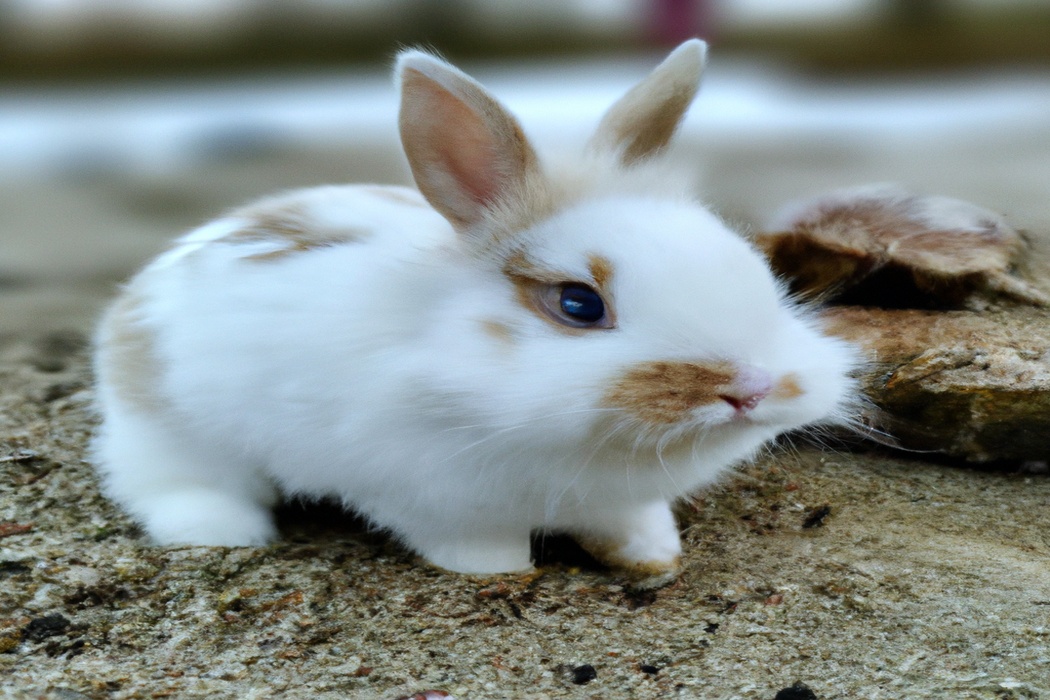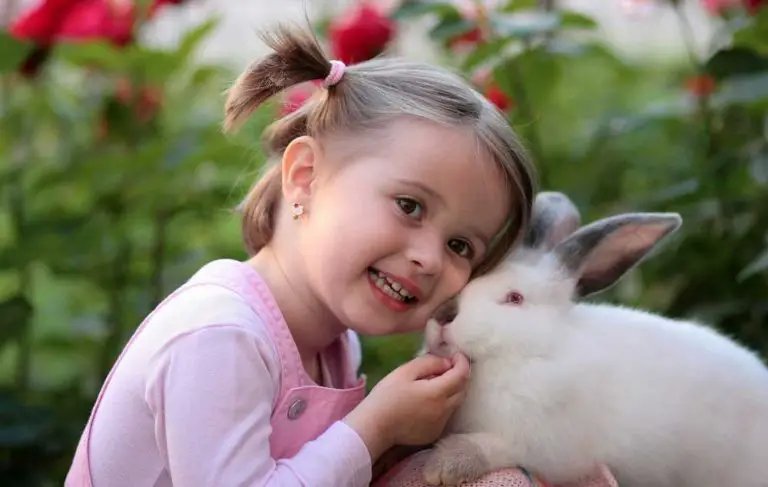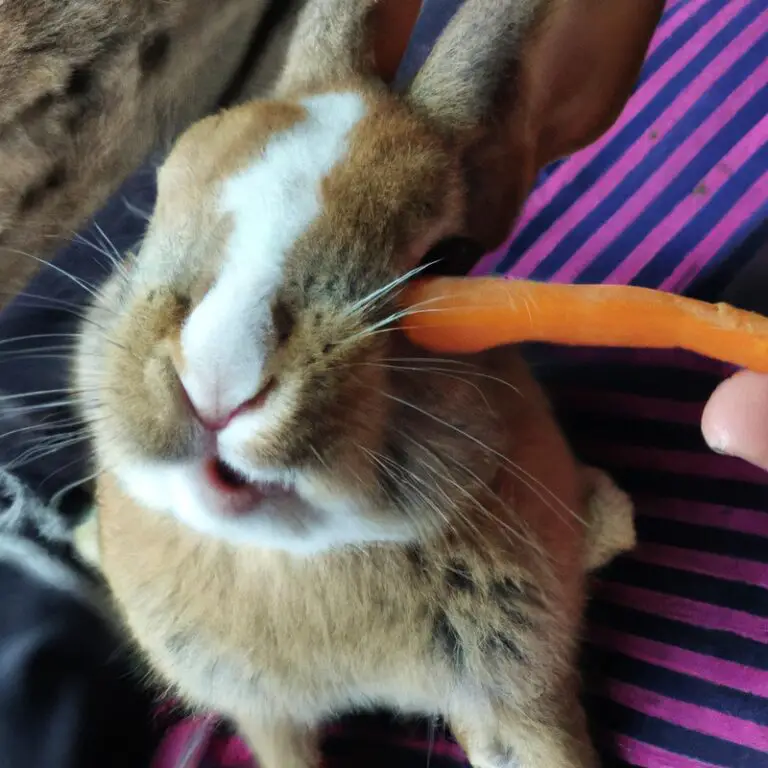Why Does My Rabbit Pee On My Bed? Curious Behavior Explained!
Key Takeaways:
- Stress or anxiety can cause rabbits to mark their territory, including your bed.
- Rabbits may urinate on your bed if they are not properly litter trained.
- Health problems, such as urinary tract infections, can also lead to inappropriate urination.
- Spaying or neutering your rabbit can help reduce the likelihood of them peeing on your bed.
Have you ever woken up to find your cozy bed soaked in rabbit pee? It’s definitely not the most pleasant surprise, but don’t worry, you’re not alone.
Many rabbit owners have faced the issue of their furry friends using their beds as a personal restroom.
But why does this happen? In this article, we’ll dive deep into understanding rabbit behavior and explore the various reasons behind this behavior.
From territorial marking to stress and anxiety, we’ll cover it all.
Plus, we’ll share some practical tips to help you prevent this messy situation and establish a harmonious living space with your rabbit. So, let’s unravel the mystery of why rabbits pee on beds and find the solutions together!
| Reasons | Explanation |
| Marking Territory | Rabbits have a natural instinct to mark their territory by urinating on objects, including your bed. |
| Lack of Litter Training | If your rabbit is not properly litter trained, they may seek out soft surfaces, such as your bed, to relieve themselves. |
| Stress or Anxiety | Rabbits may urinate on your bed as a response to stress or anxiety, such as changes in their environment or routine. |
| Medical Issues | Urinating outside the litter box can be a sign of underlying medical issues, such as urinary tract infections or bladder stones. |
| Mating Behavior | Unneutered or unspayed rabbits may urinate on your bed as a form of mating behavior. |
Understanding Rabbit Behavior
Understanding rabbit behavior is key to building a strong bond and ensuring the well-being of your furry friend.
The Importance of Understanding Rabbit Behavior
Understanding rabbit behavior is essential for their well-being and your bond with them.
It enables you to interpret their actions, needs, and emotions more accurately.
By understanding rabbit behavior, you can provide them with a suitable environment, appropriate diet, and the right social interactions.
It helps you identify any potential health issues or stressors that might affect their behavior.
When you understand your rabbit, you can create a harmonious and happy living environment for them.
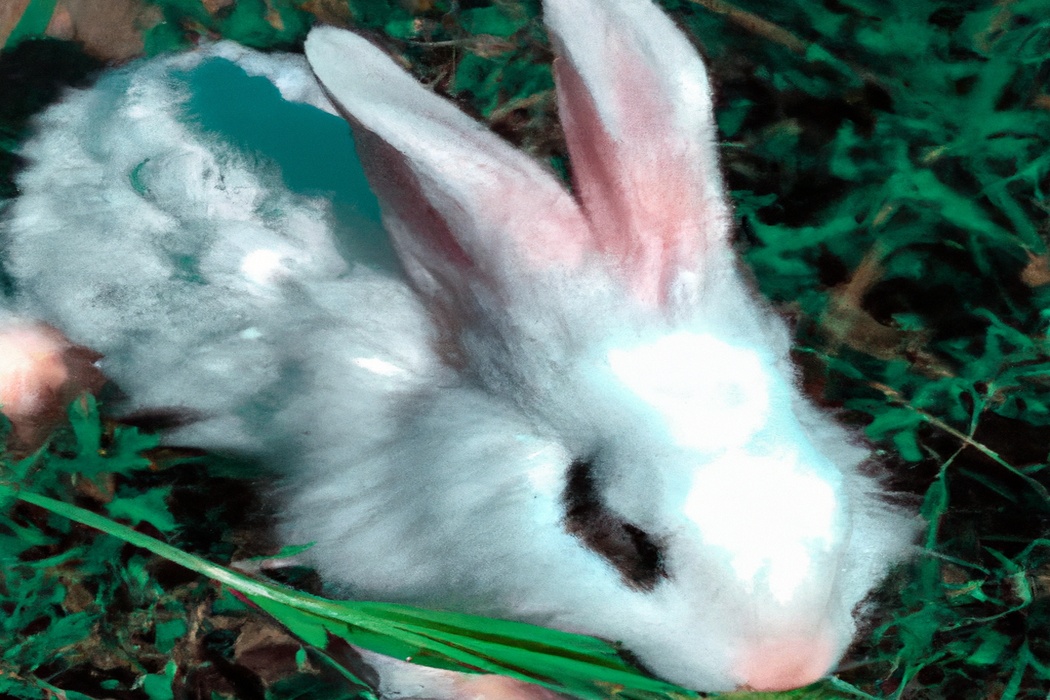
Common Rabbit Behaviors
Common Rabbit Behaviors: rabbits are known for their unique behaviors. Some common rabbit behaviors include:
- Binky: this is when rabbits jump and twist in the air, typically a sign of pure happiness.
- Thumping: rabbits thump their hind legs to communicate danger to other rabbits.
- Digging: rabbits have a natural instinct to dig, which can be directed towards designated digging areas.
- Grooming: rabbits groom themselves and each other to maintain their fur and bond with their companions.
- Chinning: rabbits rub their chin on surfaces to mark their territory with scent glands.
- Flopping: rabbits will flop onto their sides or back when they feel relaxed and safe.
- Nudging: rabbits use their noses to nudge objects or people to get attention or express affection.
By understanding these common rabbit behaviors, you can better communicate and bond with your furry friend.
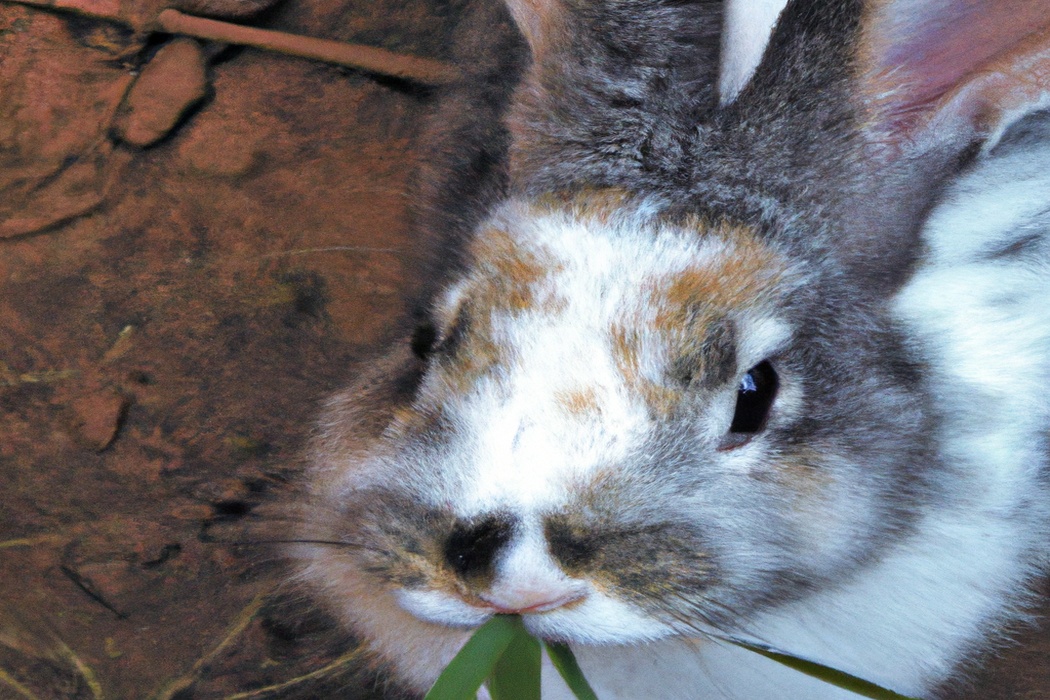
Reasons Why Rabbits Pee on Beds
Rabbits may pee on your bed due to territorial marking, inappropriate litter box training, urinary tract infections, or stress and anxiety.
Territorial Marking
Territorial marking is a common behavior in rabbits.
It’s their way of claiming an area as their own.
When rabbits pee on beds, they are marking the scent of their urine as a way to establish their territory.
This behavior can be more prevalent in unneutered or unspayed rabbits.
Providing appropriate litter boxes and ensuring regular cleaning can help minimize this behavior.
Additionally, neutering or spaying your rabbit may reduce their need to mark their territory.
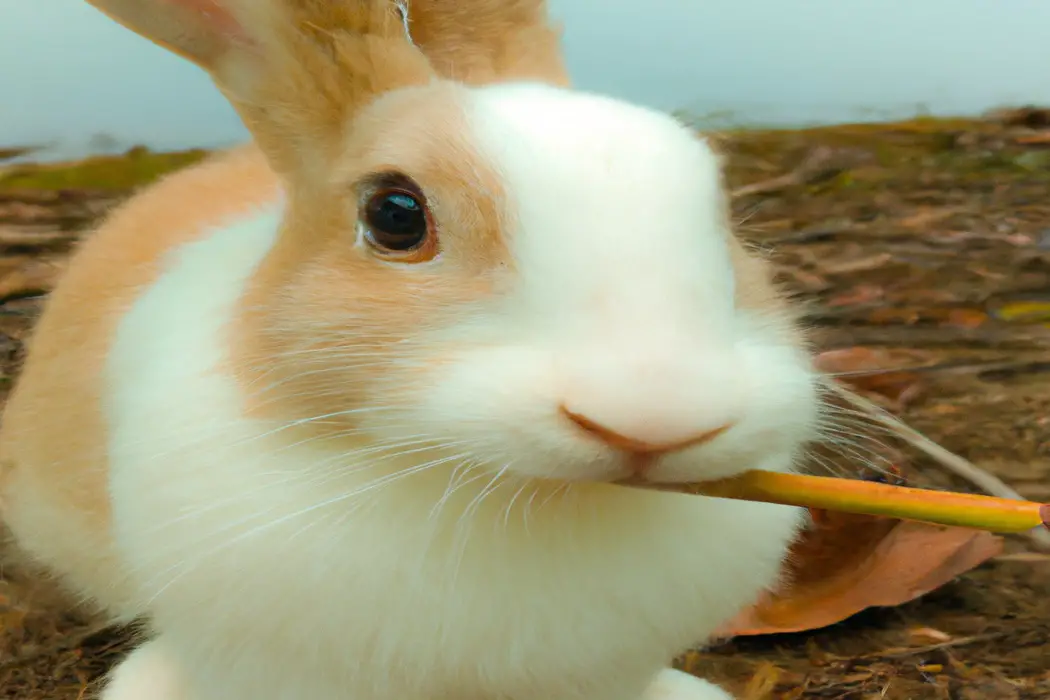
Inappropriate Litter Box Training
Inappropriate litter box training can occur due to a variety of reasons. Some possible causes include a dirty or inaccessible litter box, stress or anxiety, territorial marking, or medical issues.
To address this issue, it’s important to ensure that the litter box is clean and easily accessible for your rabbit.
Creating a calm and stress-free environment can also help. If the behavior persists, it’s advisable to consult with a veterinarian to rule out any underlying health problems.
Urinary Tract Infections
Urinary tract infections, or UTIs, can affect rabbits just like they can affect humans. These infections occur when harmful bacteria enter the urinary tract, causing inflammation and discomfort.
If your rabbit has a UTI, you may notice them peeing more frequently or in unusual places, including on your bed.
It’s important to seek veterinary care for your rabbit if you suspect a UTI, as they can be quite painful and may require medication to clear up. Keeping your rabbit’s living space clean and providing fresh water can help prevent UTIs.
Stress or Anxiety
Stress or anxiety can cause rabbits to pee on beds.
Rabbits may feel stressed or anxious due to changes in their environment, loud noises, the presence of other animals, or even unfamiliar scents.
They sometimes use urination as a way to mark territory and establish a sense of safety.
To prevent this behavior, it is essential to create a calm and comfortable space for your rabbit, provide them with plenty of mental and physical stimulation, and ensure they have a secure enclosure.
Tips to Prevent Bed Peeing
Prevent bed peeing by spaying or neutering your rabbit and setting up a proper litter box. Additionally, reduce stress, establish a bed-free zone, and provide enrichment for your furry friend.
Spay or Neuter Your Rabbit
Spaying or neutering your rabbit is important for various reasons. Firstly, it helps control the rabbit population and prevents unwanted litters.
Additionally, it can improve your rabbit’s behavior by reducing aggression and urine marking.
Neutering male rabbits can also prevent testicular cancer, while spaying females can prevent uterine cancer. It’s a simple and safe procedure that can be done by a qualified veterinarian.
By spaying or neutering your rabbit, you’re ensuring their overall health and wellbeing.
Provide a Proper Litter Box Setup
To provide a proper litter box setup for your rabbit, there are a few key things to keep in mind.
First, choose a litter box that is large enough for your rabbit to comfortably move around and eliminate waste in.
Line the box with a layer of rabbit-safe litter, such as paper-based or wood pellet litter.
Place the litter box in a quiet and easily accessible area for your rabbit.
Regularly clean the litter box to ensure a clean and hygienic environment for your rabbit.
Finally, consider providing multiple litter boxes if you have a larger living space to help prevent accidents.
Reduce Stress and Provide Enrichment
To reduce stress and provide enrichment for your rabbit, create a calm and stimulating environment. Ensure their living space is quiet and free from loud noises.
Provide plenty of toys and activities to keep them mentally and physically engaged.
Offer a variety of fresh vegetables and hay to encourage natural foraging behavior. Spend quality time with your rabbit, offering gentle petting and play.
Keep their routine consistent and predictable to minimize stress.
Regular exercise and a spacious, comfortable living space are essential for their well-being.
Establish a Bed-Free Zone
To establish a bed-free zone for your rabbit, you can take a few simple steps. First, make sure your rabbit has a designated area with a litter box and bedding where it can rest comfortably.
Second, block off access to your bed by using gates or barriers.
This will help train your rabbit to sleep in its own space. Third, regularly reward and praise your rabbit for using its designated area, reinforcing good behavior.
With consistency and patience, you can create a bed-free zone for your rabbit.
When to Consult a Veterinarian
If your rabbit’s bed peeing behavior persists, if you notice changes in urine color, odor, or frequency, or if your rabbit shows signs of pain or discomfort, it is important to consult a veterinarian.
Persistent Bed Peeing Behavior
Persistent bed peeing behavior in rabbits can be a sign of an underlying health issue or a behavioral problem. It is important to consult a veterinarian to determine the cause and take appropriate action.
Potential causes can include urinary tract infections, bladder stones, hormonal imbalances, or territorial marking.
A vet can conduct tests and examinations to provide a proper diagnosis and recommend treatments or interventions. Remember to provide a clean and appropriate litter box, and keep an eye out for any changes in your rabbit’s behavior or health.
Changes in Urine Color, Odor, or Frequency
If you notice changes in your rabbit’s urine color, odor, or frequency, it’s important to pay attention. These changes could be indicators of an underlying health issue.
Here’s what you should know:
- Color: Normal rabbit urine is usually yellow or clear. If you notice a drastic change in color, such as red, orange, or brown, it could be a sign of blood in the urine or a dietary issue.
- Odor: Rabbit urine usually has a mild, slightly sweet odor. If you detect a strong or foul smell, it might suggest an infection or dehydration.
- Frequency: Rabbits typically urinate frequently, but if you notice a sudden increase or decrease in urine production, it could be a sign of a urinary tract problem or bladder issue.
Don’t ignore these changes in your rabbit’s urine. Consult a veterinarian for a proper diagnosis and treatment if necessary.
Signs of Pain or Discomfort
When a rabbit is experiencing pain or discomfort, there are several signs to look out for. These include changes in behavior, such as increased aggression or withdrawal, as well as a decrease in appetite or water intake.
Your rabbit may also show signs of physical discomfort, such as limping, difficulty moving, or grooming excessively in one area.
If you notice any of these signs, it’s important to consult a veterinarian as soon as possible to ensure your rabbit’s health and well-being.
Frequently Asked Questions
Is it normal for rabbits to pee on beds?
Yes, it is normal for rabbits to pee on beds. Rabbits are naturally inclined to mark their territory with their urine.
This behavior is more common in unneutered or unspayed rabbits, as their hormones drive them to mark their environment.
Providing a designated litter box and spaying or neutering your rabbit can help minimize the peeing on beds behavior. Regular cleaning and training can also be helpful in preventing accidents.
How can I train my rabbit to use the litter box?
To train your rabbit to use the litter box, start by placing the litter box in a corner of their enclosure.
Make sure it’s easily accessible.
Next, put some of their droppings or soiled bedding in the litter box to encourage them to use it.
Reward them with praise or a small treat when they use the litter box correctly.
Consistency is key, so keep reinforcing this behavior every time they go in the litter box.
Finally, be patient as rabbits may take some time to learn and adjust to using the litter box consistently.
Can rabbits be house-trained like cats?
Yes, rabbits can be house-trained, but it takes time and patience.
They have a natural instinct to eliminate in certain areas, so you can use that to your advantage.
Start by setting up a litter box for your rabbit and placing hay or newspaper inside.
Encourage your rabbit to use the litter box by placing some of its droppings inside.
Be consistent and reward your rabbit with treats and praise when it uses the litter box correctly.
It’s important to remember that accidents may still happen, especially in the beginning, so be patient and continue reinforcing the desired behavior.
Final Verdict
Understanding rabbit behavior is essential in addressing the issue of rabbits peeing on beds. Factors such as territorial marking, inadequate litter box training, urinary tract infections, and stress or anxiety can contribute to this behavior.
To prevent bed peeing, spaying/neutering your rabbit, providing a proper litter box setup, reducing stress, and establishing a bed-free zone are recommended.
It is crucial to consult a veterinarian if the bed peeing behavior persists or if there are changes in urine color, odor, frequency, or signs of pain. In summary, with proper understanding, training, and care, it is possible to overcome this issue and maintain a clean and comfortable environment for both you and your rabbit.

